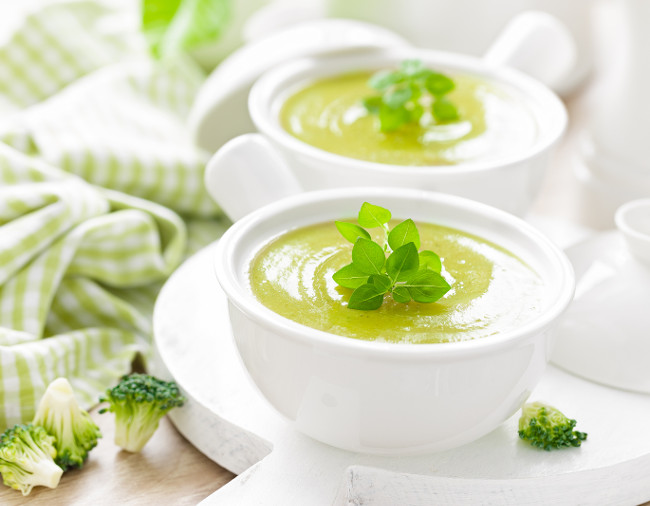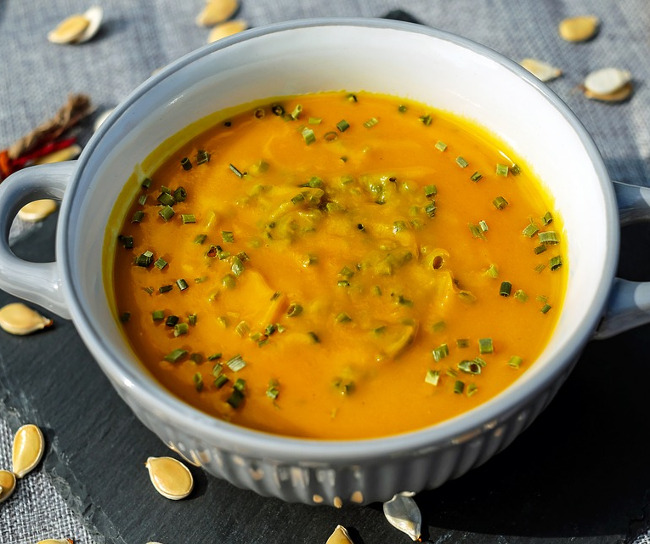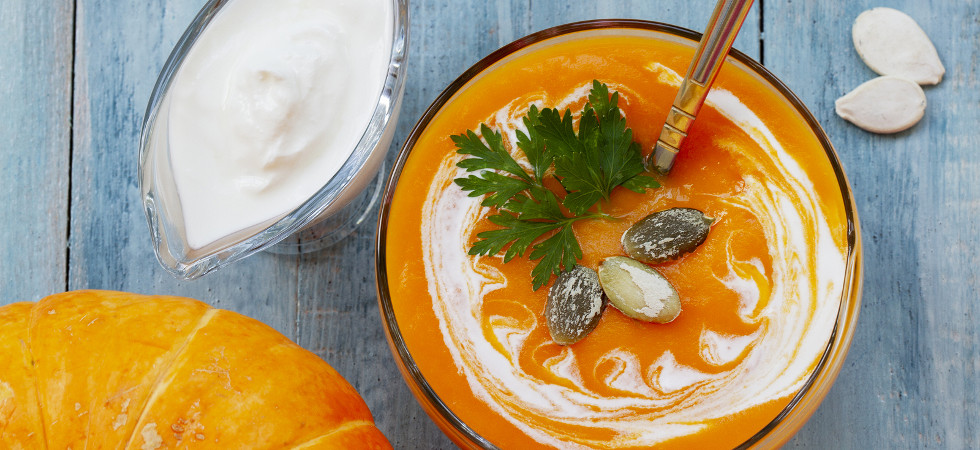Soup is a quick and convenient meal that provides a myriad of nutrients in a variety of forms. Hot, cold, smooth or chunky, and with many different delicious flavours to enjoy, it’s a dish that you could eat every day and still find different ways to prepare to keep it interesting.
Recently, it has received a lot of buzz regarding its ability to aid weight-loss, with experts claiming that it is an essential part of a diet, while various studies have shown that soup can indeed help you lose weight.
You may ask yourself if this is to be believed and how does soup actually help to aid weight loss. We’re here to answer some of the questions for you and to advise on how best to use soup as a healthy weight-loss tool.

Soup makes you eat less
Eating this before a main course helps you eat less of the food that will be served afterwards. Various studies have found that people who eat a bowl of soup as an appetizer consume fewer calories during the main course, meaning that eating soup can be an effective way to curb calories.
Soup has low energy density
Soup is low in calories and high in fibre from vegetables and beans, making it a low energy-dense food. According to the Centers for Disease Control and Prevention, broth-based soups fall under the low and very low energy density categories, therefore, you can eat as much as you want without consuming too many calories.
Soup makes you feel full for longer
Vegetables and beans that are used to make soup contain fibre, which keeps you feeling full by increasing the volume of food you’re consuming. Fibre and protein also slow down the rate at which food leaves your stomach, making you feel full for a longer period of time.
Soup is a healthy snack
Experts advise people to eat a healthy snack between meals to help them lose weight. Soup makes a good snack, especially fresh versions containing lots of vegetables. For most broth-based soups, a 1-cup serving contains 56 to 122 calories, which is a good amount to consume for a snack.

Tips
Eat your soup about 30 minutes before your main course to allow your body to register the food. You will start to feel fuller and therefore, you will eat less of the more calorie-dense foods. It’s also advisable to start with the low-energy foods on your plate when eating the main meal.
Choose broth-based soups over high-fat, cream-based soups because broth-based soups have lower calories. Also, ensure that you choose or make low-sodium broth because even healthy vegetable soups can contain more sodium than the recommended daily amount.
For even better results, make efforts to lower the energy density of your diet, for instance, you can replace some meat with vegetables and drink water rather than high-calorie beverages.
Final thoughts
By eating soup every day as a snack and before your main meals, you can significantly minimize the number of calories you intake, which should result in a loss. You can make soup at home and try different recipes such as cabbage, butternut squash, pumpkin versions and more. You just need to find some that curb your hunger, satisfy your cravings, taste great and provide fibre and protein. It’s also important to remember to incorporate other things to help you shed those pounds such as exercising and switching to a whole-foods diet.






















